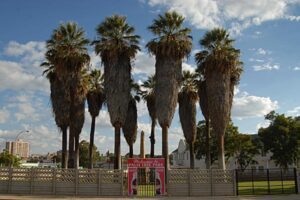
By:Kandjengo kaMkwaanyoka
I read the Harvard Growth Lab Report on the assessment they made on Namibia about the low-hanging fruits, but I just think they were more convenient because there are so many industries that have the potential to grow.
Policymakers and economic facilitators are talking about various low-hanging fruits/sectors that can be enhanced for more growth, that is employment and wealth creation.
The government brought in the Harvard Growth Lab to assess the country’s potential sectors that can generate inclusive growth after the pandemic.
The list suggested by the Growth Lab for the sectors that are considered to be low-hanging fruits can be enhanced for more inclusive growth.
However, there is the entertainment and recreation industry which has been quite a source of income for many.
The previous years the country hosted many international artists and big events that attracted huge crowds.
One of Africa’s musical giants, Koffi Olomide, washere for a performance the other month which was attend by our president.
Then why did Meme Saarah, Tate Calle and Tate Shiimi never prioritise the entertainment industry in their budgetary allocations?
Even in the country’s policies, entertainment and recreational matters are just never considered.
The only little investment the country does is in the ministry of sport, national services and youth, which is mostly to pay salaries for some administrators and political appointees that could not even support nor get the sports sector at the right standard.
I was out last night. One thing I observed is that entertainment and other arts are low-hanging fruit.
Is quite puzzling that it was never featured in our priorities.
But Windhoek is full of events every weekend that pulls out great numbers and commands purchasing power.
I watched local artists doing beautiful work and how the crowd responded to their vibe and unleashed a spending spree.
We were in our seats but as soon as these amazing people got on stage we stood up to watch and enjoyed their art which is worth all the necessary assistance.
At the gate I was charged N$30 which I wanted to refuse because I was going to support the entrepreneurs inside the Palm Tree Park. I was reminded that there will be a performance later.
The 30bucks’ entrance fee, which I agreed to pay eventually, was shared among the event promoters, organisers and artists. Various alcohol and food outlets benefitted from the spending power of the revellers.
My point is: we have a bunch of unconventional sectors and industries that generate income for our people but we overlook them just because the IMF, Harvard and EU did not mention them or recommend them to us.
The Growth Lab developed tools to target relevant players in industries with high potential to guide policy makers. This is after the pandemic. The question is: Where can growth come from in a post-COVID-19 world.
The Growth Lab then advised the Namibia policymakers and investment facilitators to optimise the stewardship of natural resources, revamping the role of the public sector as a growth enabler.
The American researcher advised the government to create opportunities that include Namibians in the growth process and identify opportunities in sectors with high potential to deliver productive diversification.
However, none of the great lab’s advice touched on the unconventional industries that the country has, where many Namibians are operating and making a living.
The fact that they are more informal they are not considered or featured in the country’s priorities. Entertainment and recreation is not the only sector that matters and commands spending power. There are many, they just need fiscal and policy considerations from the highest office.
Email: erastus@thevillager.com.na









Comments